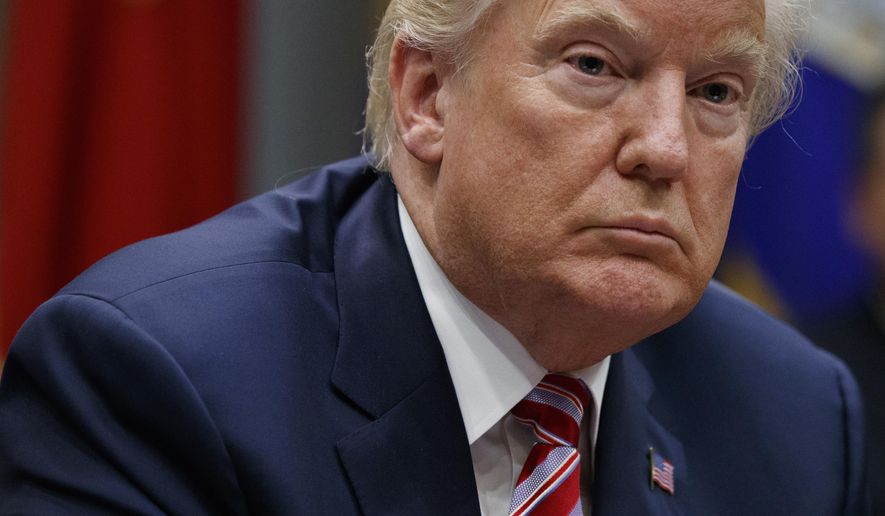President Trump signed legislation Wednesday afternoon repealing the Consumer Financial Protection Bureau’s mandatory arbitration rule that encouraged class-action lawsuits against banks and credit card companies.
Mr. Trump signed the measure despite a personal appeal from CFPB Director Richard Cordray and opposition from some veterans’ groups. Business and trade groups generally praised the move.
“Arbitration is a simpler, flexible, and faster process than turning to the courts to settle an issue between consumers and financial companies,” said Jason Oxman, CEO of the Electronic Transaction Association, which represents more than 500 payments and technology companies. “The rejection of the anti-arbitration rule is an important win for consumers and the U.S. economy.”
Richard Hunt, president and CEO of the Consumer Bankers Association, said the CFPB’s rule “was never about protecting consumers; rather, it was about protecting trial lawyers and their wallets.”
“The CFPB’s own study backs that up and proves trial lawyers would have been the real winners had this rule gone into effect,” Mr. Hunt said.
Competitive Enterprise Institute financial policy specialist Iain Murray urging similar action against the CFPB payday-lending rule.
“Using impartial, third-party arbitration as a cost-effective form of dispute resolution keeps access to credit open and affordable,” Mr. Murray said. “The next step for Congress is to disapprove the CFPB’s even more egregious rule against small dollar loans, which will kill access to needed credit for millions of less well-off Americans.”
In a letter to the president this week, Mr. Cordray said the rule imposed by his agency “is all about protecting people who simply want to be able to take action together to write the wrongs done to them” by companies such as Wells Fargo and Equinox.
“I think you really don’t like to see American families, including veterans and service members, get cheated out of their hard-earned money and be left helpless to fight back,” Mr. Cordray told the president.
The White House cited a recent Treasury Department report that said the CFPB rule would neither protect consumers nor serve the public interest.
“Under the rule, consumers would have fewer options for quickly and efficiently resolving financial disputes,” the White House said. “Further, the rule would harm our community banks and credit unions by opening the door to frivolous lawsuits by special interest trial lawyers.”
It called the CFPB’s action “uninformed and ineffective.”
But William Attig, executive director of the Union Veterans Council, joined other veterans’ groups by saying he is “appalled and disheartened” that Mr. Trump is signing the legislation.
“President Trump has chosen the side of big banks and corporate lobbyists over the men and women who fight and bleed for our nation,” he said.
American Bridge, a liberal super PAC, criticized the president for taking action that it said would help Wall Street at the expense of working families.
“Donald Trump is selling-out middle class families, working Americans, and veterans by signing this dangerous legislation — a key Wall Street lobbying priority — which lets banks and credit card companies evade legal accountability after defrauding their customers,” said spokesman Andrew Bates. “Giving large, financial sector companies the ability to deprive American consumers of fundamental legal rights using fine print is the exact opposite of ’draining the swamp’ — and it’s just the latest example of Trump proving his entire campaign last year was based on lies.”
• Dave Boyer can be reached at dboyer@washingtontimes.com.




Please read our comment policy before commenting.